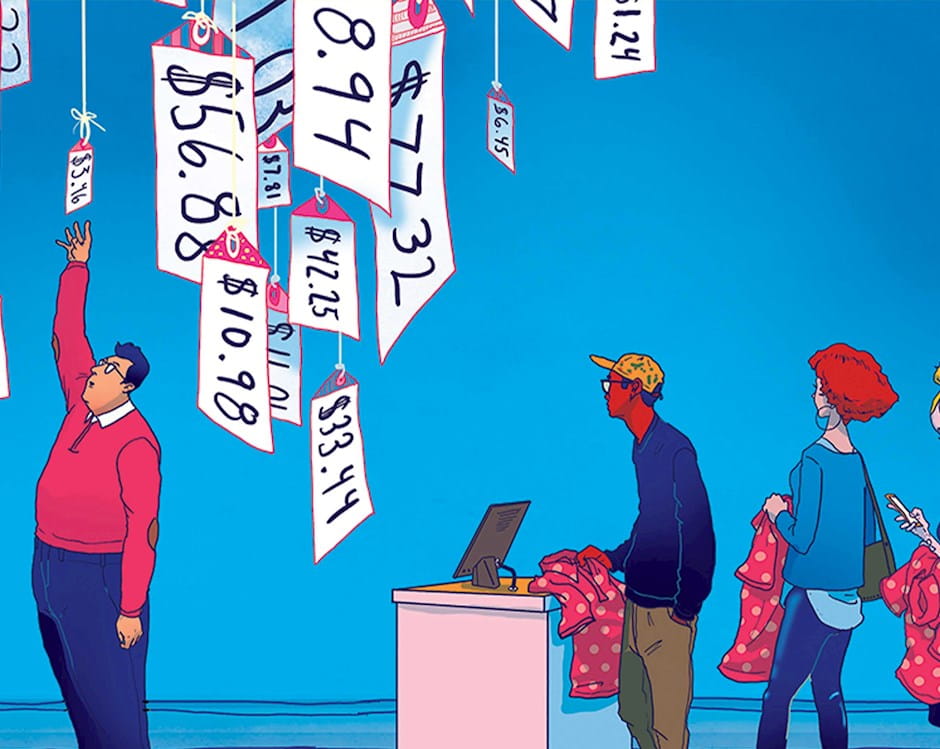
Are You Ready for Personalized Pricing?
Companies are figuring out what individual customers will pay—and charging accordingly.
Are You Ready for Personalized Pricing?Coffee makers and single-serve coffee pods are tied goods, companion products whose sales are closely related. A company may sell a coffee maker for cheap—but make up for it with what they bring in from pods.
This category has generated high margins over time, but competition is changing that, according to Chicago Booth’s Pradeep K. Chintagunta, who studied optimal pricing strategies for tied goods with Temple University’s Marco Shaojun Qin and Maria Ana Vitorino from INSEAD and the University of Minnesota. The researchers investigated pricing strategies that can be beneficial for manufacturers on both sides of the equation.
Printers, cameras, video consoles, and razors are other examples of tied goods. Consumers buy a primary, durable product, then buy related, consumable after-market products such as cartridges, film, games, or razor blades. In some cases, one company makes both the main and tied good. In other cases, one company may make the razors, and another company may make the blades—but also pay royalties to the razor manufacturer. In the United States, companies typically make the primary item inexpensive and sell after-market accessories for a larger markup. But product compatibility and accessibility to cheaper accessories are both growing, putting pressure on existing models.
Drawing on the Nielsen Datasets at the Kilts Center for Marketing, the researchers examined the single-serve coffee systems sold in Portugal between 2007 and 2012. In the Portuguese coffee market during this period, each brand produced its own coffee machines and coffee pods, all incompatible with each others’. This allowed the researchers to estimate costs and markups of different systems and build an econometric model to explore scenarios that differed from the observed one. Namely, the researchers explored what would have happened to companies’ prices and profits if one of the largest coffee manufacturers in Portugal, Delta Cafés, had allowed another company to pay licensing fees to produce pods that were compatible with its Delta Q–branded single-serve coffee maker.
What the researchers observed was counterintuitive: in their model, companies that produced the licensed pods had the highest profits when paying royalty rates that were relatively high (in the 10–15 percent range). Paying low royalty rates (in the 5 percent range) did not necessarily benefit the licensees profitwise because manufacturers of the coffee machines lacked enough expected royalties to reduce the price of the primary item in order to sell more units. In turn, fewer coffee machines sold meant less demand for pods.
The researchers’ model identifies a range of royalty rates that would benefit the manufacturers of both the primary and secondary products when compared to a nonlicensing scenario. With royalty rates in the 10–15 percent range, not only did the licensee do well, but the coffee-machine maker also benefited because it wasn’t subject to uncertainty related to the tied-goods market, and consumers had access to many coffee-pod options.
Pradeep K. Chintagunta, Marco Shaojun Qin, and Maria Ana Vitorino, “Licensing and Price Competition in Tied-Goods Markets: An Application to the Single-Serve Coffee System Industry,” Marketing Science, forthcoming.
Your Privacy
We want to demonstrate our commitment to your privacy. Please review Chicago Booth's privacy notice, which provides information explaining how and why we collect particular information when you visit our website.